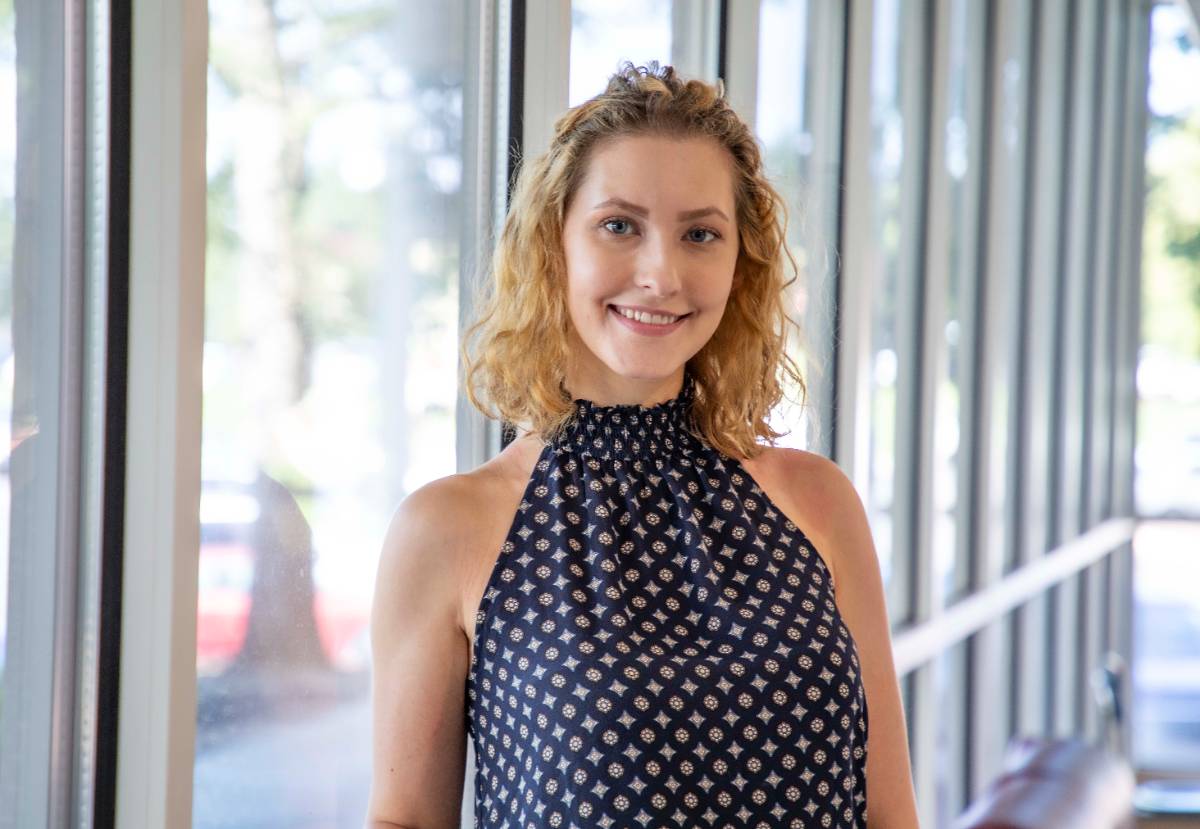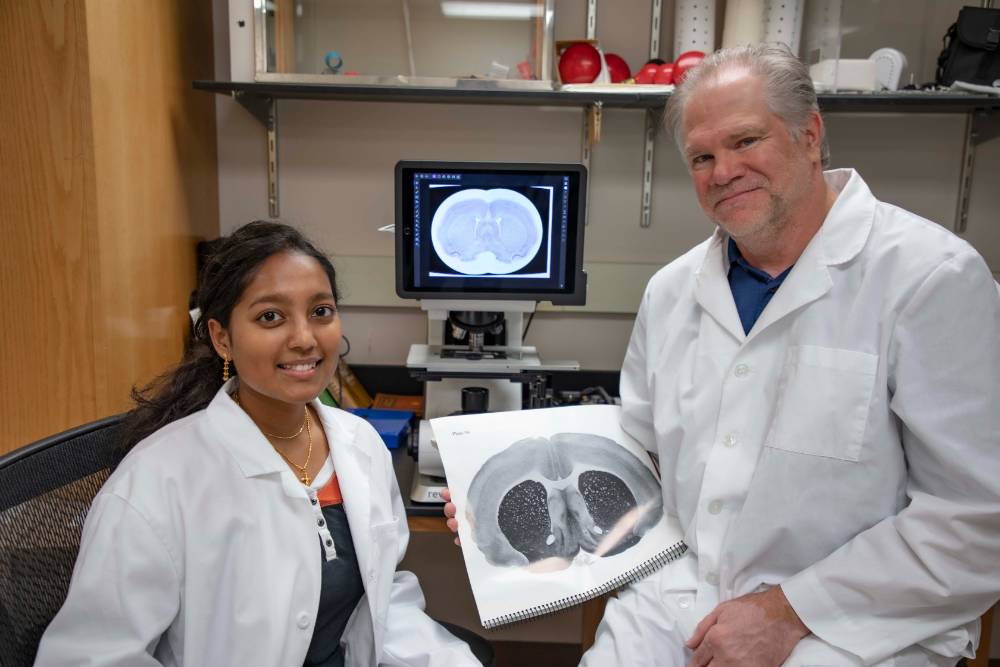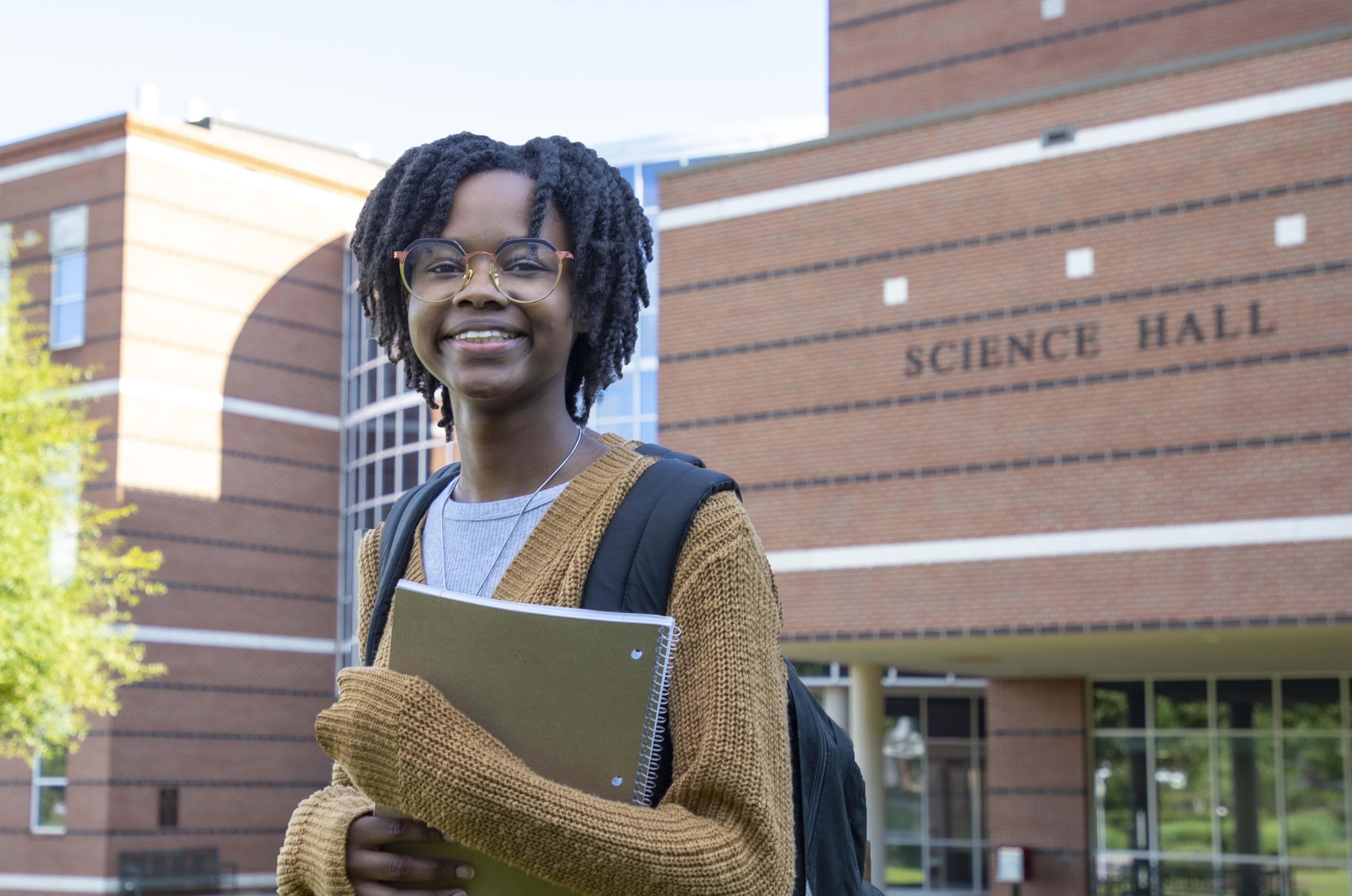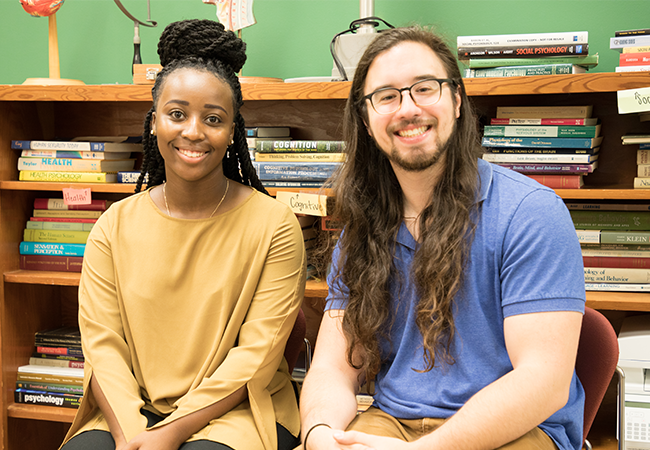



"Enrolling in this program has gave me the tools needed to provide effective treatment and research new interventions. I have gained knowledge on how to define and assess mental health that I can share with my community including resources available.” - Taylah Simmons
"The combination of the fantastic research facilities, the experienced faculty members, and the connections to the medical campus provides a wealth of research opportunities. My end goal is to do neuroscience research on TBI. I want to pursue a PhD in Neuroscience. This program and track allows me to gain the lab experience needed to become a competitive applicant for a PhD program. ” - Jonathan Packer